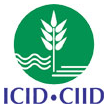The Expert Platform serves as a community of experts that conduct interdisciplinary research on water security, sustainable development, and future studies in Eastern Europe, the Caucasus and Central Asia and adjacent regions.
The Expert Platform seeks to fill the gap in an integrated approach and expertise rather than replace or duplicate the activities of existing institutions.
Initiated and established by experts from the region, the Platform invites all interested to join forces!
Heritage
 Two canals from Central Asia selected for prestigious WHIS Award 2025. The Dustlik and Eski Tuyatortar Canals are the first irrigation structures from Central Asia have been included in the ICID's WHIS Register.
Two canals from Central Asia selected for prestigious WHIS Award 2025. The Dustlik and Eski Tuyatortar Canals are the first irrigation structures from Central Asia have been included in the ICID's WHIS Register.
Publications
 According to a new SIC’s report on water and energy in the Syr Darya River Basin, cooperation and coordination become more effecting when the countries improve their national systems and develop regional cooperation mechanisms.
According to a new SIC’s report on water and energy in the Syr Darya River Basin, cooperation and coordination become more effecting when the countries improve their national systems and develop regional cooperation mechanisms.
 Platform experts study issues related to financing the water sector in Central Asian countries and regional water cooperation. It is planned to prepare a scoping paper on various financing needs and looking for ways to attracht additional sustainable financing
Platform experts study issues related to financing the water sector in Central Asian countries and regional water cooperation. It is planned to prepare a scoping paper on various financing needs and looking for ways to attracht additional sustainable financing
 The Diagnostic Report on Rational Use of Water Resources in Central Asia as of 2019 reviews the use and management of water resources in Central Asia over the period from 1998 to 2019. It, particularly, (1) assesses changes in water and land use and management in Central Asia over the past 20 years; (2) identifies future water challenges, development trends and needs for the long-term rational use of water resources and irrigated land; (3) assesses the progress made with implementation of the “Fundamental Provisions of Water Management Strategy in the Aral Sea Basin”; (4) prepares a database of key information and indicators in support of the Diagnostic Report.
The Diagnostic Report on Rational Use of Water Resources in Central Asia as of 2019 reviews the use and management of water resources in Central Asia over the period from 1998 to 2019. It, particularly, (1) assesses changes in water and land use and management in Central Asia over the past 20 years; (2) identifies future water challenges, development trends and needs for the long-term rational use of water resources and irrigated land; (3) assesses the progress made with implementation of the “Fundamental Provisions of Water Management Strategy in the Aral Sea Basin”; (4) prepares a database of key information and indicators in support of the Diagnostic Report.
Events
Workshop “Regional Center of Excellence on Nexus Approach in Central Asia: from Concept to Partnership
17 February 2026
MoreMeeting on the development of a Regional Center of Excellence for the nexus approach on the base of the Expert Platform on Water Security, Sustainable Development and Future Studies
9 November 2024
MoreScientific-Practical Conference "Water in Central Asia: the Future in Cooperation"
8 November 2024
More